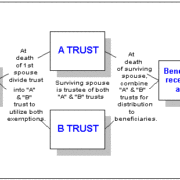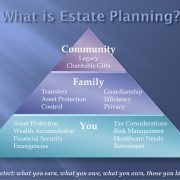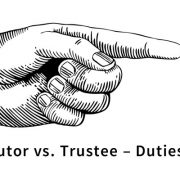Cleveland, Ohio estate planning and elder law attorney, Daniel A. Baron, offers the following information on Long Term Care and incorporating it into your Estate Planning:

If you are over aged 65, a fall could leave you incapacitated or worse, it could be fatal. Having a Non-fatal fall could leave you unable to care for yourself for either a short period of time or a long period of time. Should this happen, who is going to pay for your Long Term Care?
One in every three Americans falls each year. Falls for the elderly are the leading cause of non-fatal and fatal injuries for those aged 65 or older.
If you happen to fall you run the risk of:
- Head Injuries
- Broken Bones
- Hip fractures
- Significant loss of independence
If you should take a fall and you are over the age of 75 the chances of you being admitted to a skilled nursing facility are four times greater.
Even if you should fall and do not sustain a major injury, you become fearful of falling again and thus becoming less active. With this said, there are steps you can take to reduce your risk of falling.
Information Source – National Council on Aging
Six steps to Reduce Your Risk of Falling
In order to help your aging loved one, friend, or neighbor follow these steps to reduce their risk of falling.
Enlist their support in taking simple steps to stay safe. For example:
- Ask your aging loved one, friend, or neighbor if they have a concern about falling.
- Although many older adults recognize the risk of falling exists, they do not believe it will happen to them, or if they fall they will not be hurt – even if they have fallen in the past.
- A good place to start is by sharing NCOA’s “Debunking The Myths of Older Adult Falls”. If they show a concern about falling, dizziness, or balance suggest they discuss it with their Health Care provider who can assess their risk and suggest programs or services that could help
Discuss current health conditions
- Ask your aging loved one, friend, or neighbor if they are experiencing problems managing their own health
- Ask whether or not they are having trouble remembering to take their medications, or are they experiencing any side effects
- Ask if it is getting more difficult for them to do things they used to do easily
- Ask if they are taking advantage of ALL the preventative benefits now offered under Medicare such as the Annual Wellness visit. Encourage them to speak openly with their health care provider about ALL their concerns
Ask about their last eye checkup
- If your aging loved one, friend, or neighbor wears glasses or contact lenses, make sure that their prescription is current and they are using their glasses or contact lenses as advised by their eye doctor
- Keep in mind that wearing tint changes glasses or contact lenses can be hazardous when going from bright sun into darkened buildings and homes. A simple strategy is to change glasses upon the entry into a building OR stop until the tint has changed
- Bifocals can also be problematic on stairs, so it is VERY important to be extra cautious on the stairs. For those already struggling with low vision, consult with a low-vision specialist for ways to make the most of their eyesight.
If you are noticing your aging loved one, friend, or neighbor is holding onto the walls, furniture or someone else while walking or if they have difficulty arising from a chair:
- These are signs that it might be time to see a physical therapist
- A trained physical therapist can help your loved one improve their balance, strength, and gait through exercise
- They may also suggest that your loved one use a cane or walker. The physical therapist will also offer guidance on how to use these aids. Make sure you heed their advice
- Poorly fit aids can actually increase your risk of falling, so make sure that all aids are fitted correctly
Talk about their medications
- If your aging loved one, friend, or neighbor is having difficulties managing their own medications or they are experience side effects, encourage them to discuss their concerns with their doctor or pharmacist
- Suggest they review their medications each time they get a new prescription
- Your loved one may find it useful to use a chart of some sort to keep track of their medications and their scheduling. Adding a time medication dispenser that can be refilled every week or month by a family member, friend or neighbor can promote peace of mind and ensure that medication is being taken as prescribed
- Be aware if your aging loved one, friend, or neighbor is taking non-prescription medication that may contain sleep aids – including painkillers with “PM” in their names. These can contribute to balance issues and dizziness. If your aging loved one is having sleeping difficulties encourage them to speak with their health care professional for different alternatives
Do a walk-through safety assessment of their home
There are many simple and inexpensive ways to make a home safer. For Professional Assistance, contact an Occupational Therapist. Some examples for making your loved ones home safer:
- Lighting: Increase lighting throughout the house especially at the top and bottom of stairs. Ensure that lighting is readily available when they are getting up in the middle of the night
- Stairs: Make sure there are two secure railings on both sides of the staircase
- Bathrooms: Install Grab bars in the tub/shower area and near the toilet. Make sure that grabs bars are installed in places where your loved one will be able to use them as intended. Consider installing an ADA toilet which has a higher seat then standard toilets. Perhaps having a shower chair would help as well as installing a hand held shower.
For more information on reviewing your goals for Long Term Care as part of your Estate Planning, contact Daniel A. Baron of Baron Law at 216-573-3723.

















